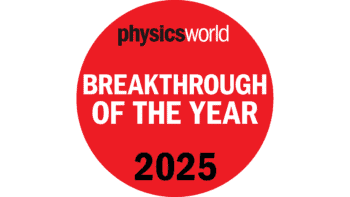Environmental concerns about the impact of carbon-dioxide emissions are continuing to build, and politicians are becoming increasingly aware that fossil-fuel reserves will not last forever. Part of a technological solution to these problems is to invest in cleaner and more sustainable energy technologies. But, of course, there are plenty of technical and political hurdles that need to be overcome first.
Some of these issues are addressed in this exclusive interview with Dan Kammen, founding director of the Renewable and Appropriate Energy Laboratory (RAEL) at the University of California, Berkeley in the US. Kammen is confident that we can transform the global energy system to be supplied entirely by renewable energies, and he believes the main challenge is to seek ways of driving down the costs at all scales.
“We have lots of industry and vested interest thinking about the current system and seeing no benefit, but lots of risks, in making the transition. And we need to bring those risks down through financing mechanisms, through popular community voter support,” he says.
Kammen also voices his opinion on the role that nuclear energy should play. “Nuclear is certainly clean in terms of the CO2 emissions, but we have a very mixed record around the world of managing nuclear,” he says. In explaining this point, Kammen refers to both the patchy safety record of the industry and the fact that many high-profile projects have ended up costing far more than their initial budgets.
In addition to his work at Berkeley, Kammen also works with the World Bank by advising it on technical and policy issues relating to energy projects around the globe. It is a role that has seen Kammen spend time in many locations around the world, including Sudan, Central America and various island states of the South Pacific. Kammen says he sees the rapid industrialization around the world as much more of an opportunity than a problem.
“They’re building energy infrastructure very quickly and they see many of the pitfalls of a fossil-fuel addiction,” he says. “The more they can make use of local clean energy resources and energy efficiency, it allows them to chart a path…and be less dependent than many people thought on the fossil-fuel economy that everyone sees as one we need to eventually phase out.”



